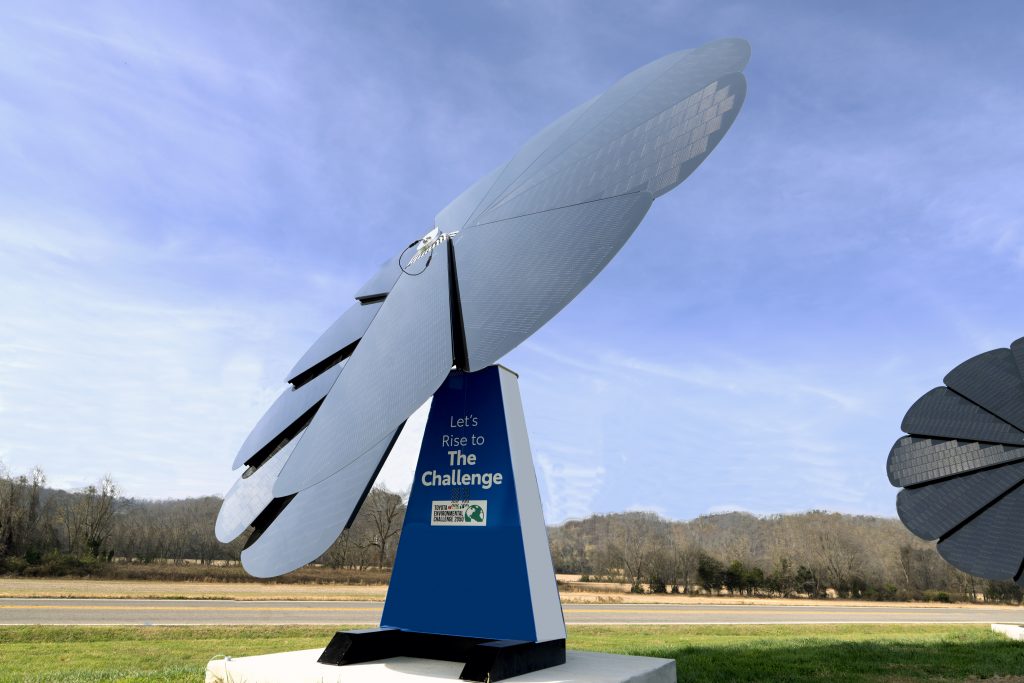The new “garden” near the main entrance of Toyota West Virginia supercharges the idea of “flower power.”
Five recently installed SmartFlower solar arrays help power the facility’s employee services buildings, which are home to popular destinations like the uniform store, footwear store, credit union, clinic and pharmacy. The flowers also help power three EV charging stations.
“This is just one more way Toyota West Virginia is embracing alternative energy and reducing our ecological footprint here in the Mountain State,” said David Rosier, Toyota West Virginia president. “Our environmental team is always working to make our plant more efficient and guiding our efforts to create a more sustainable future.”
Much like a sunflower, SmartFlowers bloom at sunrise and follow the sun’s path throughout the day, allowing them to effectively capture the sun’s rays. Because they maintain a 90-degree angle to the sun, the power they produce is optimized over that of traditional solar panels. At sunset, the flowers fold back up and await sunrise the following morning. The petals are self-cleaning, lined with tiny brushes that remove dirt and debris when they open and close.
While the flowers are beautiful and highly visible, Toyota West Virginia also has the largest solar array in the state. Located just behind the plant, this array can generate 2.6 megawatts of power. That is enough to power over 400 homes. The solar generation also reduces the Buffalo plant’s C02 emissions by an estimated 4 million pounds per year.

These initiatives are some of the many projects aimed at helping Toyota West Virginia meet the Toyota Environmental Challenge 2050. Toyota West Virginia was also recently named the winner of the Wildlife Habitat Council’s prestigious Ibis Award. This award recognizes a Wildlife Habitat Council certified program that has “demonstrated resiliency of spirit and advancement of conservation despite unforeseen or unique challenges.”
The group specifically cited the plant’s nature trail, which features forest and wetland habitats, a pollinator garden, an outdoor classroom, bird houses, bat houses and a nesting platform to support avian species in the area.
The nature trail and the outdoor classroom can be utilized by outside groups. They are just another way Toyota West Virginia gives back. Toyota has invested over $10 million in the community, supporting a wide range of philanthropic initiatives.
For information about the SmartFlowers at Toyota West Virginia, please contact George Gannon.
